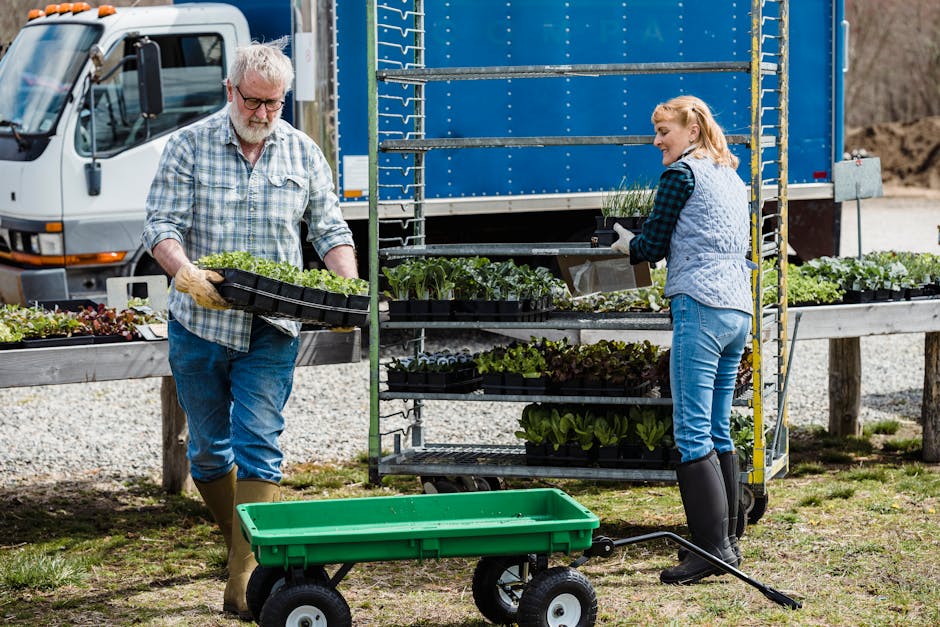The world’s population continues to expand, necessitating a steady increase in food production. A crucial question arises: are the current agricultural systems and the available farming workforce sufficient to meet this mounting demand? This essay delves into the complexities surrounding the future of farming, exploring the factors influencing agricultural output and the potential workforce shortage.
A burgeoning global population, coupled with changing dietary preferences and increasing urbanization, places a significant strain on agricultural resources. Projected food demands are expected to escalate substantially, particularly in developing nations experiencing rapid economic growth and population booms. This surge in demand necessitates a substantial increase in food production, demanding innovative solutions and a comprehensive understanding of the challenges inherent in scaling up agricultural output.
One significant obstacle to this increased production lies in the aging farmer demographics. A considerable portion of the current agricultural workforce is approaching retirement age, and suitable replacements are not always readily available. This demographic shift raises concerns about maintaining the requisite expertise and experience to cultivate crops and raise livestock effectively. The increasing complexity of modern farming practices, including precision agriculture and advanced technologies, further exacerbates the problem, demanding specialized knowledge that might not be readily transferrable to the next generation of farmers.
A variety of contributing factors exacerbate the issue of a dwindling farming workforce. The allure of urban employment opportunities, often offering higher wages and improved living standards, draws younger generations away from the often-labor-intensive and less remunerative work of farming. This migration from rural to urban areas results in a considerable loss of agricultural talent, leaving farms understaffed and hindering overall agricultural productivity.
Furthermore, the rising costs of land, equipment, and inputs like fertilizers and pesticides contribute to a challenging business environment for farmers. These increasing costs, often exacerbated by fluctuating commodity prices and global market trends, can make farming less economically viable, pushing some aspiring farmers away from the industry entirely. In many developing countries, access to credit and agricultural infrastructure remains a persistent impediment, further impeding the ability of farmers to modernize and increase output.
Beyond the issue of a shrinking workforce, technological advancements pose unique challenges and opportunities. Precision agriculture technologies, such as GPS-guided machinery and sensor-based monitoring systems, offer the potential to boost yields and optimize resource use. However, these sophisticated technologies often come with a steep learning curve, requiring farmers to adapt and invest in training, potentially widening the skills gap within the agricultural sector.
The lack of access to quality education and training programs for aspiring farmers in rural areas also plays a crucial role in this problem. Many aspiring farmers lack access to resources that equip them with the knowledge and skills necessary to operate and manage farms effectively in the 21st century. Such resources are particularly scarce in developing countries, where the burden of food production falls disproportionately on smallholder farmers.
Another pressing concern is the impact of environmental factors on agricultural productivity. Climate change is expected to inflict various adverse effects on crop yields and livestock production. Extreme weather events, such as droughts and floods, can decimate harvests and cause significant economic losses for farmers. Adapting agricultural practices to withstand these unpredictable weather patterns is essential for maintaining food security, but this adaptation requires specialized knowledge and resources that may not always be readily available to all farmers, further complicating the situation.
Addressing this multifaceted challenge necessitates a multi-pronged approach. Policies that encourage young people to pursue careers in agriculture must be implemented. These policies could involve subsidies, incentives, and educational programs targeted at students interested in farming. Access to affordable credit and improved infrastructure are crucial to supporting the modernisation and productivity of agricultural operations.
Promoting technological adoption and fostering knowledge transfer among farmers is critical to equipping the workforce with the tools and skills needed to meet the demands of the future. Investing in educational programs, workshops, and training facilities that cater specifically to the needs of the agricultural sector could help bridge the skills gap and enhance agricultural practices across the globe.
Furthermore, exploring alternative protein sources, such as cultivated meat and plant-based proteins, may eventually play a significant role in easing the burden on conventional farming systems. However, these alternative solutions are still in their nascent stages, and extensive research and development are needed to ensure their scalability and affordability.
Looking ahead, a significant shift in consumer attitudes and behaviours is equally important. Greater awareness and understanding of the intricate factors behind food production can encourage more responsible consumption habits, reducing waste and promoting sustainable agricultural practices. Support for local farmers and initiatives that promote sustainable and environmentally friendly farming practices can incentivize a shift towards more environmentally conscious production methods.
In conclusion, ensuring adequate food production for a burgeoning population requires a concerted effort across multiple stakeholders. Addressing the issue of a shrinking farmer workforce, promoting technological adoption, and investing in education and infrastructure are crucial steps in achieving food security for the future. The transition to sustainable and resilient agricultural practices will require a collective commitment to innovation, education, and mindful consumption. Only through a collaborative approach can we confidently navigate the challenges and harness the potential of farming to meet the future food demands of our world.












